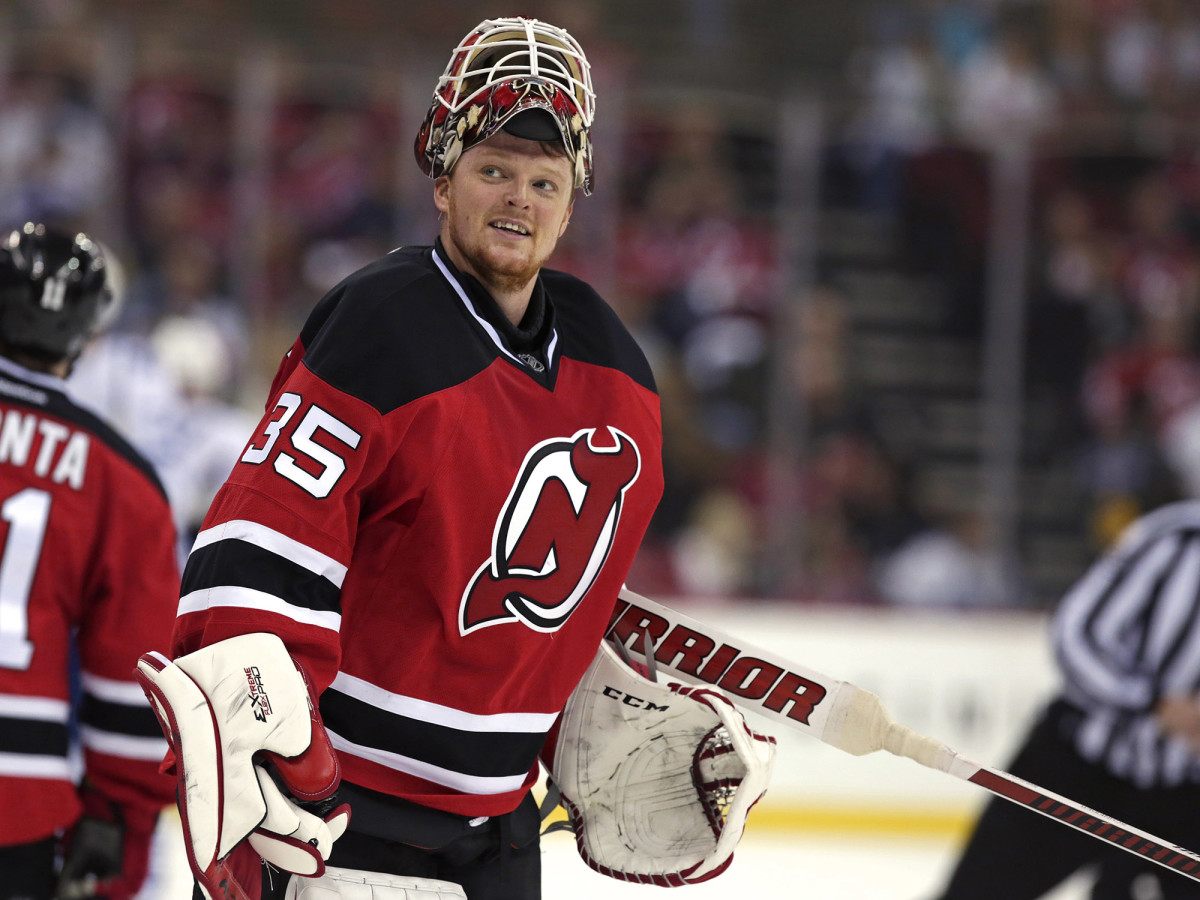The intersecting paths of USA goalies Quick, Schneider and Bishop to World Cup Hockey

WASHINGTON, D.C. – A collective revelation was recently had by the three goaltenders on Team U.S.A., and those sensitive to spoilers should know that fate will ensure this particular matter occurs sometime soon. Bear with us, though, because the parameters take time to explain.
Start in March 2004, at an ice rink not far north of the Massachusetts-New Hampshire border. It was the semifinals of the New England prep school tournament, among the most competitive high school hockey leagues this country offers. In the winning crease celebrated Jonathan Quick, then a junior and the bedrock for top-seeded Avon Old Farms. On the losing side, his prep career officially finished in the 4-1 decision, stood Cory Schneider.

Move ahead three years later, to March 24, 2007, and zip 400-some miles west to Blue Cross Arena Rochester, N.Y. By now Quick was a sophomore at UMass-Amherst, a former third-round pick of Los Angeles who had just led the Minutemen to their first-ever NCAA tournament berth. That evening, Quick and his teammates faced Maine in the East Regional final, a berth to the Frozen Four at stake. Quick was solid, making 13 saves in a scoreless first period, but two power play goals from the Black Bears led to a 3-1 exit. Before long, Quick signed his entry-level contract and began playing professionally in the ECHL. The opposing goalie who dealt Quick defeat in his last college game, making 35 saves and snuffing one of seven power plays? Ben Bishop.
So, let’s allow Schneider to recap: “Quick ended my high school career, and then Bish ended Quicky’s college career,” he says, working toward the big conclusion. “So hopefully way down the line here I’ll end Bish’s NHL career at some point.” He pauses to clarify. “In a good way. Not in an injuring him way. In a battle-of-the-40-year-old-goalies kind of way.”
And why not, since the trio seems to have been cosmically linked since adolescence? All were born in 1986, all attended Hockey East schools—Quick at Massachusetts, Bishop at Maine, and Schneider at Boston College—all developed into standout NHL netminders, and now all are representing the United States at the upcoming 2016 World Cup of Hockey. “We’re getting old now, man,” Bishop says.
Among the three, Bishop was the geographical outlier. A highly touted prospect from the Midwest—Schneider and Quick both hail from New England—Bishop committed to Maine for its legacy of developing goalies, notably his immediate predecessor, Jimmy Howard.
World Cup of Hockey a trip down memory lane for Thornton and Bouwmeester
“I didn’t really know any of those guys,” Bishop says. “They didn’t play in the USHL or the NAHL. We didn’t really keep up with prep school hockey. I didn’t know anything about them until I got there, and obviously learned quick.” The feeling, it should be noted, was mutual. “You didn’t know much about Bish,” Schneider says. “You just knew he was this huge kid who could play.”
By the time Bishop and Quick matriculated at their respective schools, Schneider had already played his freshman season with the Eagles, going 13-1-4 with a 1.90 goals against average. He turned pro as the most decorated among them too, making consecutive appearances in the NCAA final and winning Hockey East’s goalie of the year honors as a sophomore.

Not that his current teammates were statistical slouches over the two seasons they spent opposing one another. Bishop posted consecutive 20-win seasons, both ending in the NCAA semifinals; Quick’s .926 career save percentage and 2.40 GAA still stand atop UMass’ career leaderboard, and no one has won more games than his 19 in 2006-07.
“It was a bear to play in that league,” Schneider says. “Every night you were facing off against a pretty good guy who ended up having a career after college. I don't think you realize it at the time, because you’re just doing your thing in college, you’re not really worried about what’s going on down the road, but when you sit and look back, you say, Wow, there were some pretty good goalies in the league at that time.”
In the home locker room Monday morning at Verizon Center, between tune-up exhibitions before round-robin play begins later this week, bits of memory came back to the trio about their time in Hockey East together. Head-to-head, Schneider went 4-3 against Bishop, including in the ’06 Hockey East semis at TD Garden, and 2-2 against Quick; Bishop held a 2-0-1 edge over Quick. (Don’t feel bad. Quick’s the only one among them to lift the Stanley Cup.)

Everyone, of course, remembers Alfond Arena, the Black Bears’ home rink infamous for its student section. “The balcony almost hangs over the ice,” Schneider says. “They were pretty ruthless fans. Always a fun place to go, always a fun place to win, because you got to quiet that crowd.” He and Quick look back on their prep battle, when Schneider’s Phillips Academy took a 1-0 lead before allowing four unanswered. “He saw a lot of shots that night,” Quick recalls.
They figure it’s probably coincidental that they all ended up here together after traveling such similar roads, but it undoubtedly speaks to the quality of goaltending the United States has produced, and the quality of an alternative to the Canadian junior route.
Sharks' Brent Burns prepared for World Cup of Hockey with summer RV trip
“I hadn’t even thought about it,” says Scott Gordon, an assistant on Team USA and a former goalie at Boston College. “I think maybe at the time they were playing, Hockey East obviously has a lot of teams that compete for the national titles. For that reason alone, you’re in the spotlight, more high-pressure situations. That’s probably the best answer I could give you.”
Maybe, then, it’s just more fun considering these intersecting paths like the goalies do—as one small area of common ground, as a fun window into the past, and perhaps even a predictor of how Bishop’s NHL time will end.
“We made this full circle,” Schneider says. “We’ll see if that comes to fruition.”
